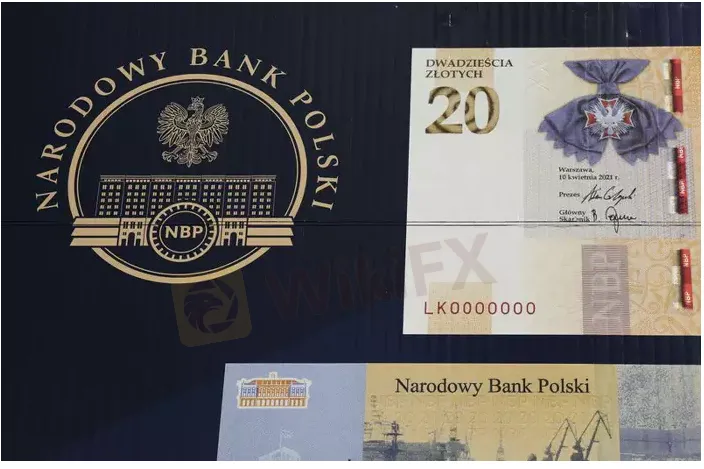简体中文
繁體中文
English
Pусский
日本語
ภาษาไทย
Tiếng Việt
Bahasa Indonesia
Español
हिन्दी
Filippiiniläinen
Français
Deutsch
Português
Türkçe
한국어
العربية
Polish central bank in wait-and-see mode, says governor
Abstract: The National Bank of Poland (NBP) will wait until its next inflation projection in November before deciding if more policy tightening is needed, its governor said on Thursday, after the Monetary Policy Council (MPC) decided to leave rates on hold.

The National Bank of Poland (NBP) will wait until its next inflation projection in November before deciding if more policy tightening is needed, its governor said on Thursday, after the Monetary Policy Council (MPC) decided to leave rates on hold.
Wednesdays decision to leave the main interest rate at 6.75% followed a run of 11 consecutive hikes, and left markets wondering if the move marked the end of the cycle or if policymakers were merely taking a break.
“This is a pause in the rate-hike cycle, but not the formal end of the rate-hike cycle,” Adam Glapinski told a news conference.
“In November another inflation report will be published, which … is the most important document that allows one to look at the coming quarters in the best way.”
Glapinski reiterated his view that inflation in Poland was mainly caused by external factors, but said there were signs that shocks in commodity markets that had fuelled price growth were easing and that he expected inflation to fall in 2023.
The Polish zloty softened as Glapinski spoke, and was down 1.36% against the euro at 1500 GMT.
“Theoretically, the NBP governor is declaring that this is not the end of the rate-hike cycle, but the zloty has weakened since the beginning of the conference, as many other comments from the governor indicate that the end is near,” ING analysts said on Twitter.
“We hear a lot about disinflationary factors, but little about inflation risks, which can be worrying.”
The Polish decision to leave rates on hold came as other central banks in central Europe had signalled an end to their policy-tightening cycles.
In Hungary the central bank raised its base rate by a larger-than-expected 125 basis points to 13% in September but said it was ending its rate-hike cycle amid a slowing economy, while in the Czech Republic policymakers kept rates steady at 7.00% for a second time in a row.

Disclaimer:
The views in this article only represent the author's personal views, and do not constitute investment advice on this platform. This platform does not guarantee the accuracy, completeness and timeliness of the information in the article, and will not be liable for any loss caused by the use of or reliance on the information in the article.
Read more

The Daily Habits of a Profitable Trader
Every professional trader follows a structured approach to ensure they are well-prepared, disciplined, and able to seize opportunities with confidence. Whether you are a seasoned investor or an aspiring trader, adhering to a robust daily checklist can significantly enhance your performance. Use this checklist to check if you are a qualified trader

The Impact of Interest Rate Decisions on the Forex Market
Interest rate changes determine currency attractiveness, influencing capital flows and exchange rate trends. Understanding this mechanism helps investors navigate the forex market effectively.

How a Housewife Lost RM288,235 in a Facebook Investment Scam
A 47-year-old housewife in Malaysia recently fell victim to an online investment scam, losing a substantial sum of RM288,235 after engaging with a fraudulent scheme advertised on Facebook.

A Trader’s Worst Mistake: Overlooking Broker Reviews Could Cost You Everything
In today’s digital age, reviews influence nearly every decision we make. When purchasing a smartphone, television, or home appliance, we pore over customer feedback and expert opinions to ensure we’re making the right choice. So why is it that, when it comes to choosing an online broker where real money and financial security are at stake many traders neglect the crucial step of reading reviews?
WikiFX Broker
Latest News
The Withdrawal Trap: How Scam Brokers Lure Victims into Paying More
FCA to Investors: Think Twice Before Trusting These Brokers
Trump\s tariffs: How could they affect the UK and your money
Trump gambles it all on global tariffs he\s wanted for decades
TradingView Brings Live Market Charts to Telegram Users with New Mini App
Trump tariffs: How will India navigate a world on the brink of a trade war?
Interactive Brokers Launches Forecast Contracts in Canada for Market Predictions
Authorities Alert: MAS Impersonation Scam Hits Singapore
IG Group Acquires Freetrade for £160M to Expand UK Investment Market
U.S. March ISM Manufacturing PMI Released
Currency Calculator







